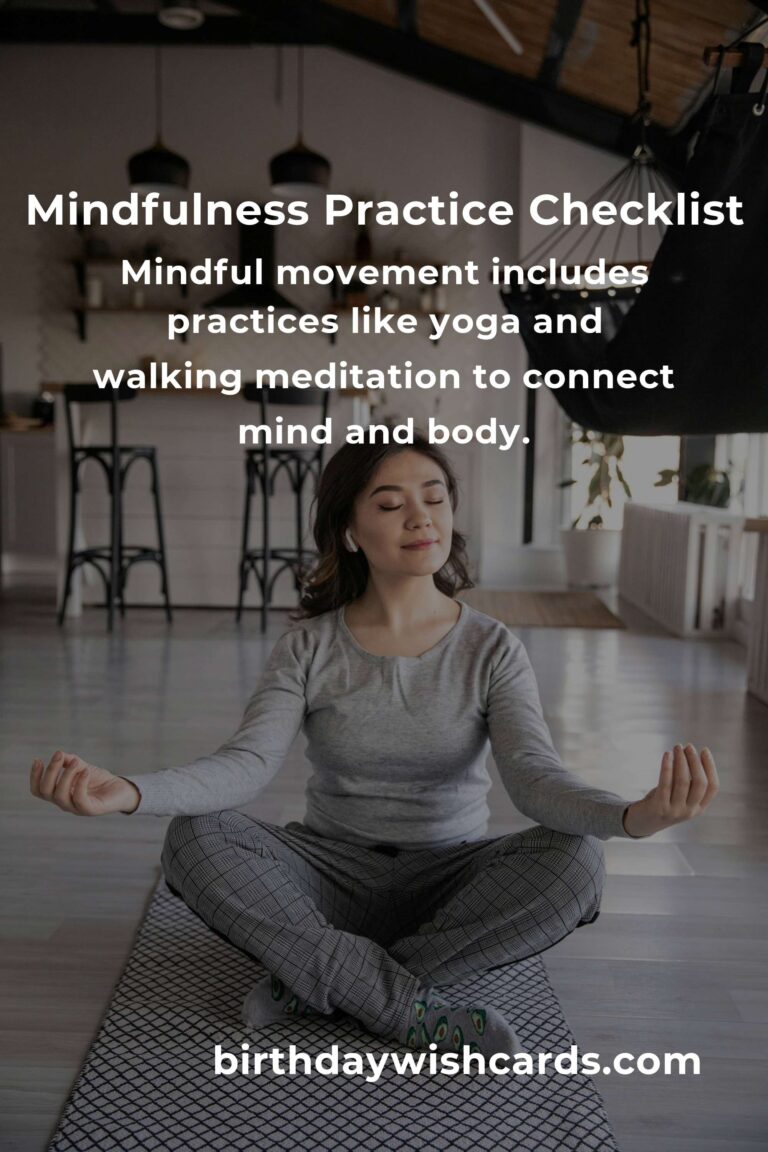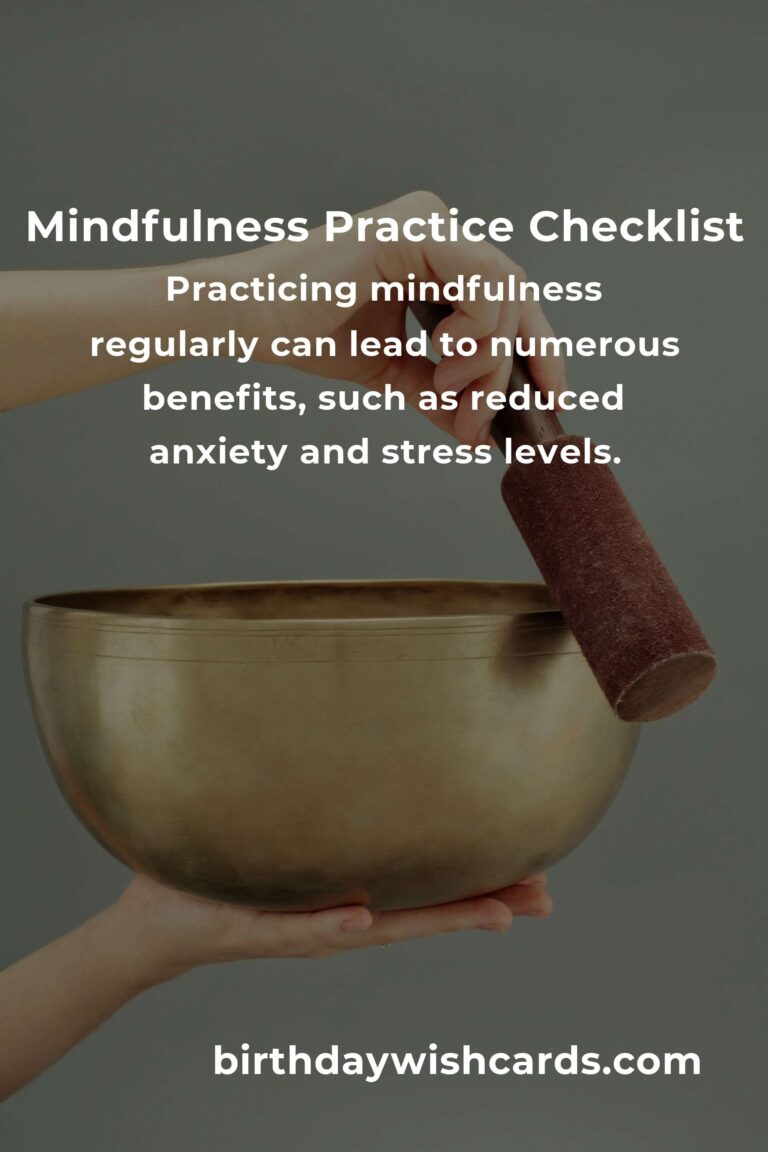
In today’s fast-paced world, mindfulness has become an essential practice for maintaining mental health and overall well-being. Whether you’re a beginner or someone who has been practicing mindfulness for years, having a checklist can help you stay on track and ensure you’re getting the most out of your mindfulness practices.
Understanding Mindfulness
Mindfulness is the art of being present in the moment without judgment. It involves being aware of your thoughts, feelings, and sensations as they happen. This practice can help reduce stress, improve concentration, and increase emotional resilience.
Benefits of Mindfulness
Practicing mindfulness regularly can lead to numerous benefits, such as:
- Reduced anxiety and stress levels
- Improved focus and concentration
- Enhanced emotional regulation
- Better sleep quality
With these benefits in mind, let’s delve into a comprehensive checklist to enhance your mindfulness journey.
Creating Your Mindfulness Checklist
Here is your ultimate checklist to incorporate mindfulness into your daily routine effectively:
Meditation Practices
- Guided Meditation: Use apps or online resources to follow guided meditation sessions.
- Breathing Exercises: Practice deep breathing techniques to help center your mind.
- Body Scan Meditation: Focus on different parts of your body to release tension.
Mindful Eating
- Slow Down: Take your time to chew and savor every bite.
- Notice Flavors: Pay attention to the taste, texture, and aroma of your food.
- Gratitude: Reflect on the journey of your food from farm to table.
Mindful Movement
- Yoga: Engage in yoga sessions to connect mind and body.
- Walking Meditation: Focus on the sensation of your feet touching the ground.
- Stretching: Perform gentle stretches to relieve physical stress.
Mindful Journaling
- Daily Reflection: Write about your thoughts and feelings at the end of each day.
- Gratitude Journal: List things you are thankful for each day.
- Set Intentions: Start your day with a positive affirmation or intention.
Mindful Listening and Communication
- Active Listening: Pay full attention when someone is speaking, without interrupting.
- Empathetic Responses: Respond with empathy and understanding.
- Mindful Speech: Consider your words carefully before speaking.
Maintaining a Regular Mindfulness Practice
Consistency is key to reaping the benefits of mindfulness. Aim to integrate these practices into your daily routine, starting with just a few minutes a day and gradually increasing the time as you become more comfortable.
Remember, the goal is not to control your thoughts but to become aware of them. With regular practice, mindfulness can transform the way you experience life, helping you live more fully and peacefully.
Conclusion
Mindfulness is a powerful tool for enhancing your mental and emotional well-being. By using this checklist, you can create a personalized mindfulness practice that fits your lifestyle. Start today and experience the profound impact of living mindfully.
Mindfulness is the art of being present in the moment without judgment. Practicing mindfulness regularly can lead to numerous benefits, such as reduced anxiety and stress levels. Mindful eating involves savoring every bite and noticing the flavors and textures of your food. Mindful movement includes practices like yoga and walking meditation to connect mind and body. Consistency is key to reaping the benefits of mindfulness.
#Mindfulness #MentalHealth #Wellbeing #Meditation #MindfulLiving

